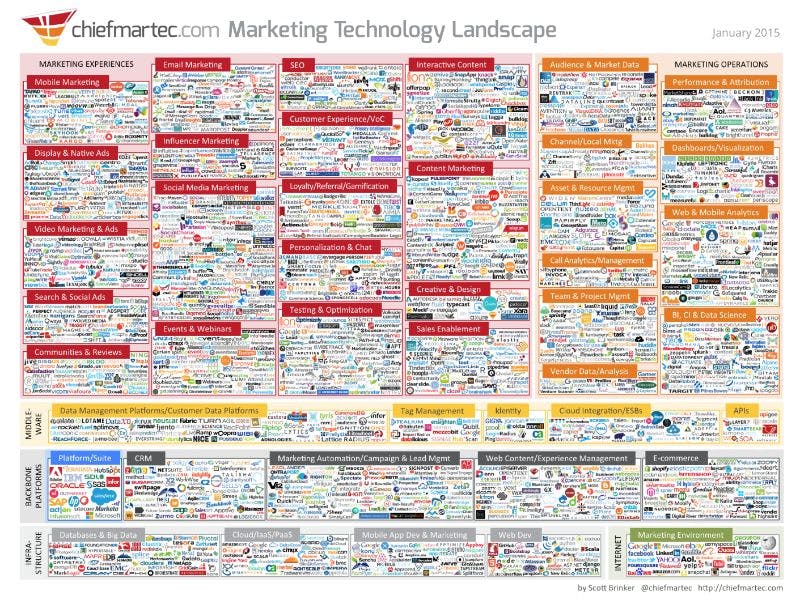
The Digital Marketing Challenge
Executing a successful marketing strategy is not easy. All marketers face the challenge of crafting a well thought out digital marketing strategy, determining which resources will best help execute it, and using those tools to ultimately grow their business.
Our Goal
Our goal is to help brands understand what really works in the world of digital marketing - and how to leverage it to their advantage.
The digital marketing space is constantly changing - and it's huge. There are almost 2,000 companies in the marketing technology space and that's growing every year. How should a business choose which technologies and channels to invest in? How can you develop a sound, authentic strategy that will legitimately build your business' near term revenue and long term growth?
The chart below, developed by Scott Brinker at chiefmartec.com, shows just how many companies are developing marketing technology (and it doesn't even include all of them).

The industry is so diversified with tools and networks because marketers have unique challenges based on their industry, audience, and brand point-of-view. No one tool can suit all use cases. How do you determine which use cases are closest to yours? How do you know when to change course? How much money should you spend? How many specialists should you hire, in which fields? What tools are right for you?
These are exceptionally difficult questions, given that technology is changing on a daily basis and many marketers can get distracted by the latest shiny new object. In some circles, the latest digital ad news is bleak. Ad blocking tools are on the rise - and have recently become available on mobile operating systems, too.
According to a PageFair/Adobe study cited in Folio Magazine, "U.S. websites forfeited over $5 billion in ad revenue in 2014 due to blockers. It expects that loss to double in 2015 and nearly double again next year."
While the display ad industry sorts itself out, there are two tried-and-true methods to reach audiences online:
• Personal, targeted social and search ads
• Original, value-add content marketing
Though users can opt out of some ads they see, these ads are more contextualized to the native experience, providing a utility more similar to the content in which they are immersed. Next generation products must help marketers spend across these reliable channels as ultimately, the market is moving away from traditional targeting and tracking methods.
Where should you invest your budget? Which strategies will help you reach your goals? How does each tactic fit together? Which tools make sense to invest in for results?